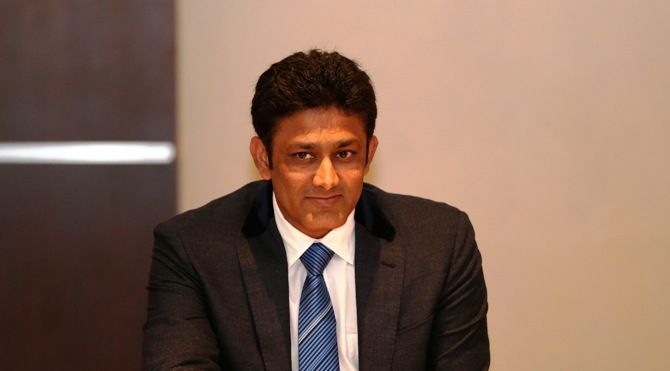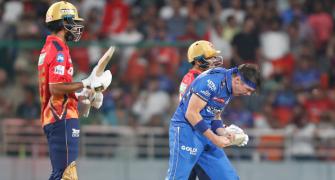
The ICC cricket committee has recommended three changes to the ODI fielding restrictions: the requirement to have two compulsory catchers in the first 10 overs be removed, the batting powerplay be removed and that five fieldsmen be allowed outside the circle from overs 41-50 instead of four.
The committee, headed by former India captain Anil Kumble, discussed the ODI playing conditions, code of conduct as far as player behaviour is concerned, illegal bowling actions, use of technology and helmet safety among other issues.
The committee reviewed the ODI playing conditions and felt that there were times towards the end of an ODI innings when bowling and fielding captains appeared to have limited defensive options available to them. The committee was also conscious that the playing regulations should be kept as simple as possible, and changes kept to a minimum.
The Cricket Committee will recommend to the Chief Executives Committee that there should be three changes to the ODI fielding restrictions as mentioned above.
Acknowledging that the balance had shifted too far in favour of batsmen in limited-overs format, the ICC cricket committee has recommended the removal of batting powerplay besides allowing five fielders outside the circle in the last 10 overs.

This means that for the first 10 overs there will be two fielders outside the circle, for the next 30 overs there will be four fielders out and for the last 10 overs there will be five outside the circle. The committee believes these changes will give fielding captains greater freedom to both attack and defend when required.
"We have enjoyed two very productive days of meetings in which the committee discussed a wide range of issues affecting the global game through practical examples and illustrations," said Kumble, the committee's chairman.
He added: "Overall it was an extremely positive 'think-tank' in which each of the representatives contributed to some robust discussions across the board. I would like to thank all those who added their vast input and experience over the course of the meetings and in making recommendations for the next series of Board meetings in June."
In an attempt to strike a balance between bat and ball, the ICC will not introduce a regulation about the size of bats, but it will provide input on this issue to the MCC through the consultation process ahead of the re-drafting of the Laws of Cricket in 2017. The committee reiterated its previous edict that boundaries at international venues needed to be set-up to the maximum size at each venue.
There was discussion on the calling of no balls, and particularly the delay caused and reviewing on the fall of a wicket. The committee asked ICC to investigate ways in which no balls can be reviewed quickly upon the fall of a wicket, to ensure there are no delays to the batsman leaving the field.
The committee recommended that all no balls in ODI and T20I cricket should result in a free hit, rather than just foot fault no balls.







